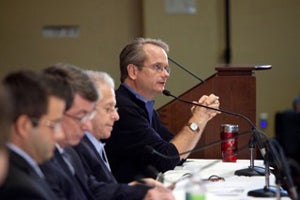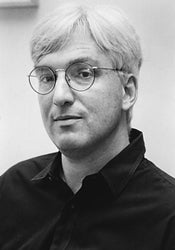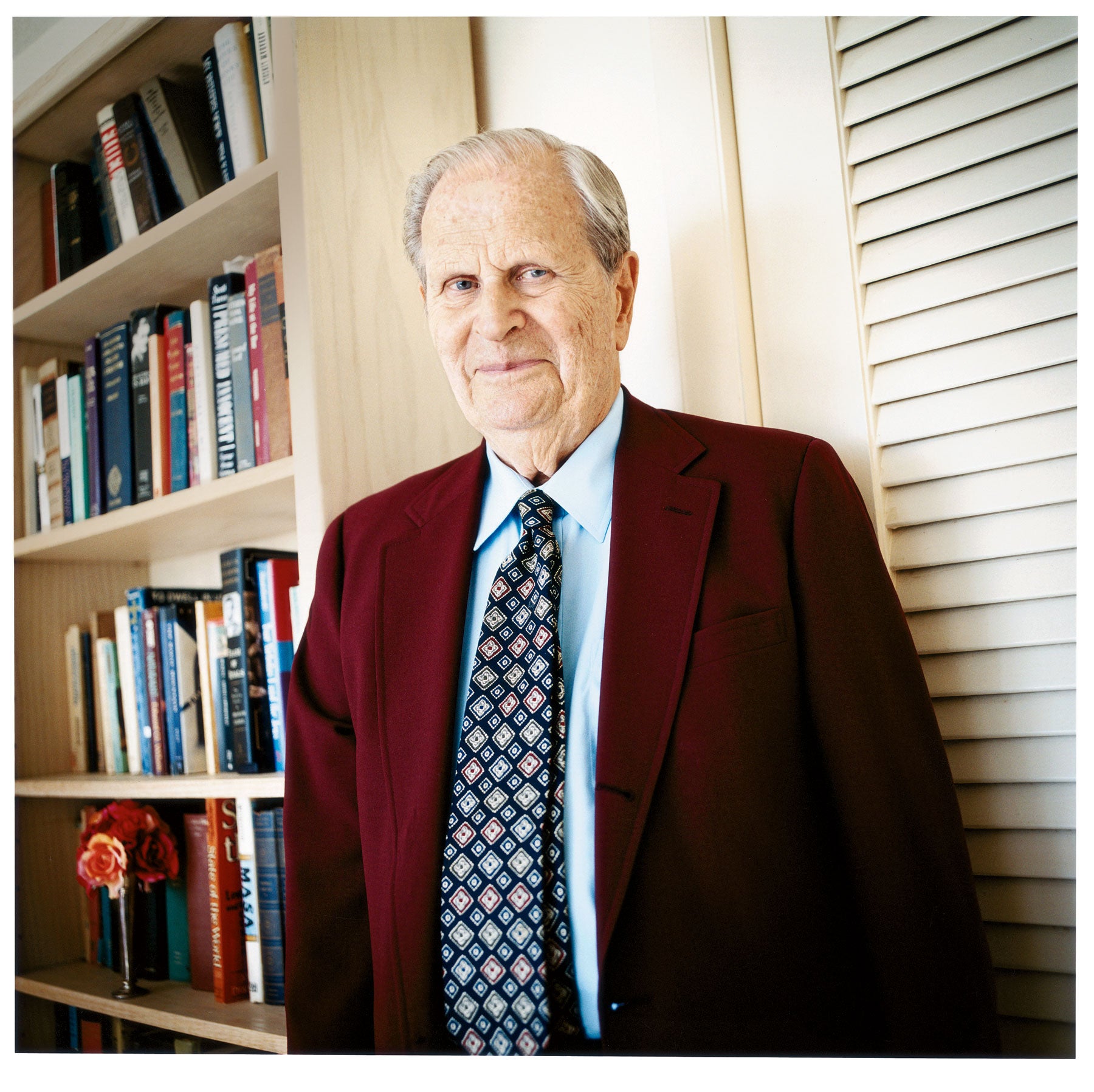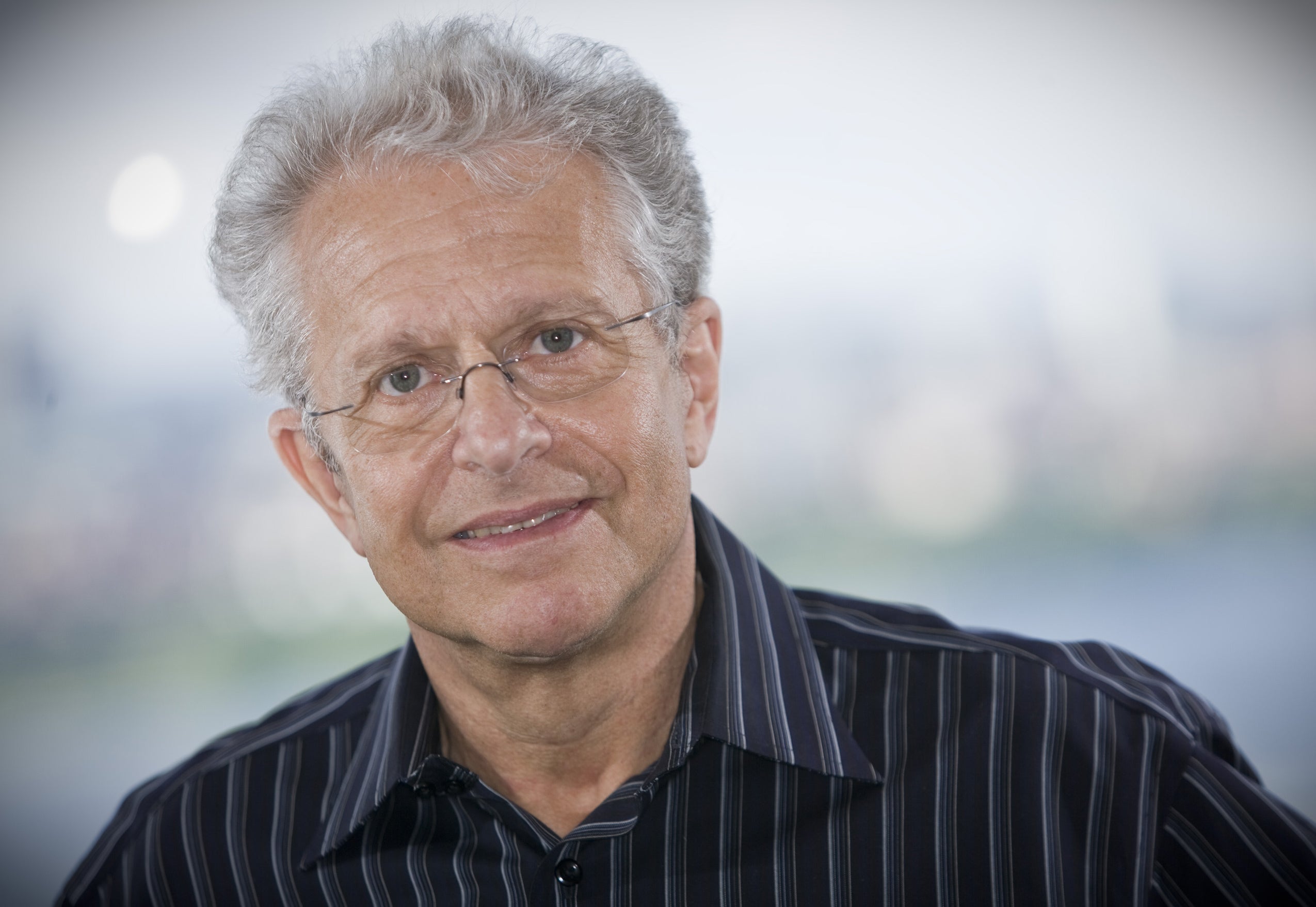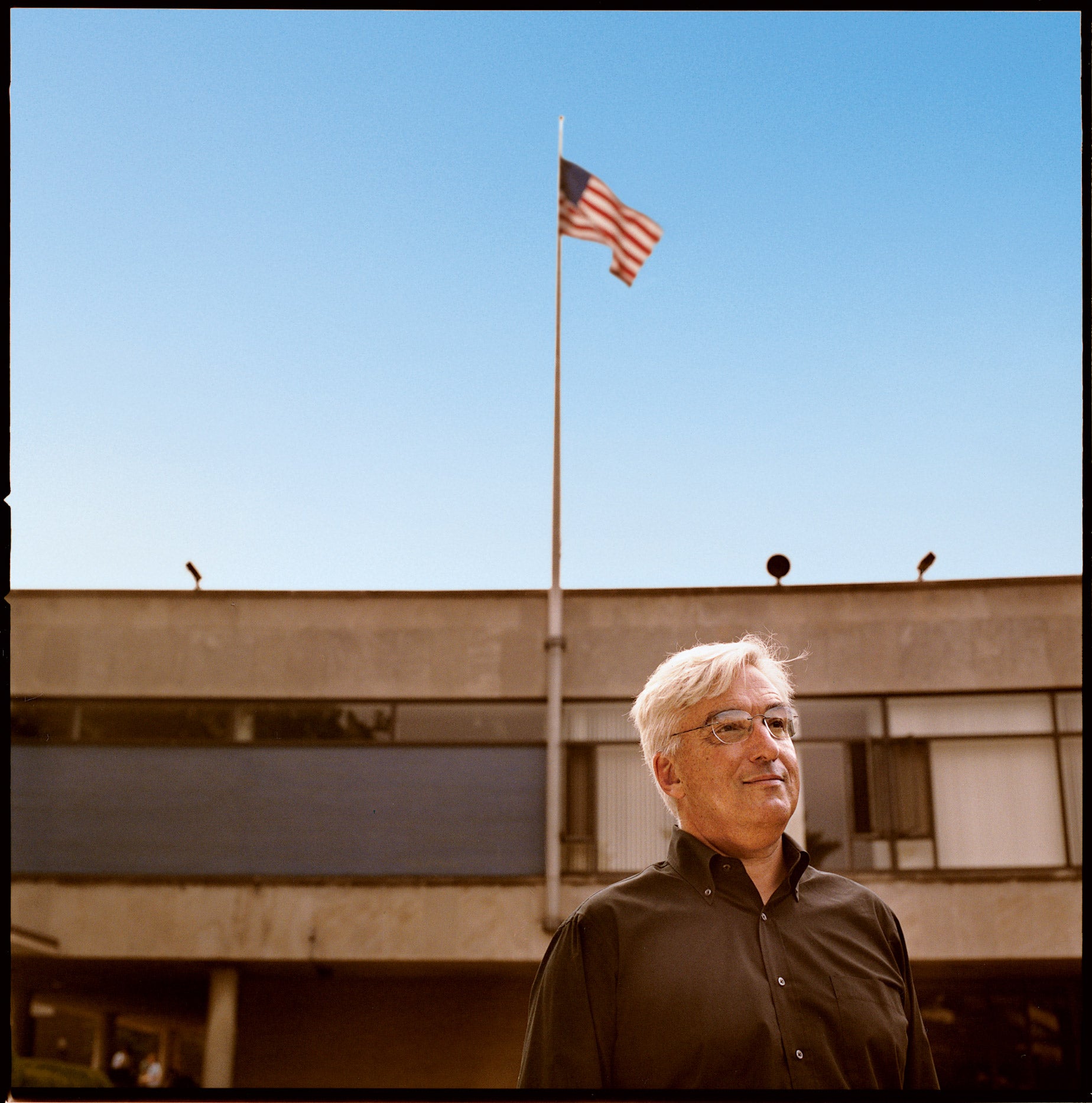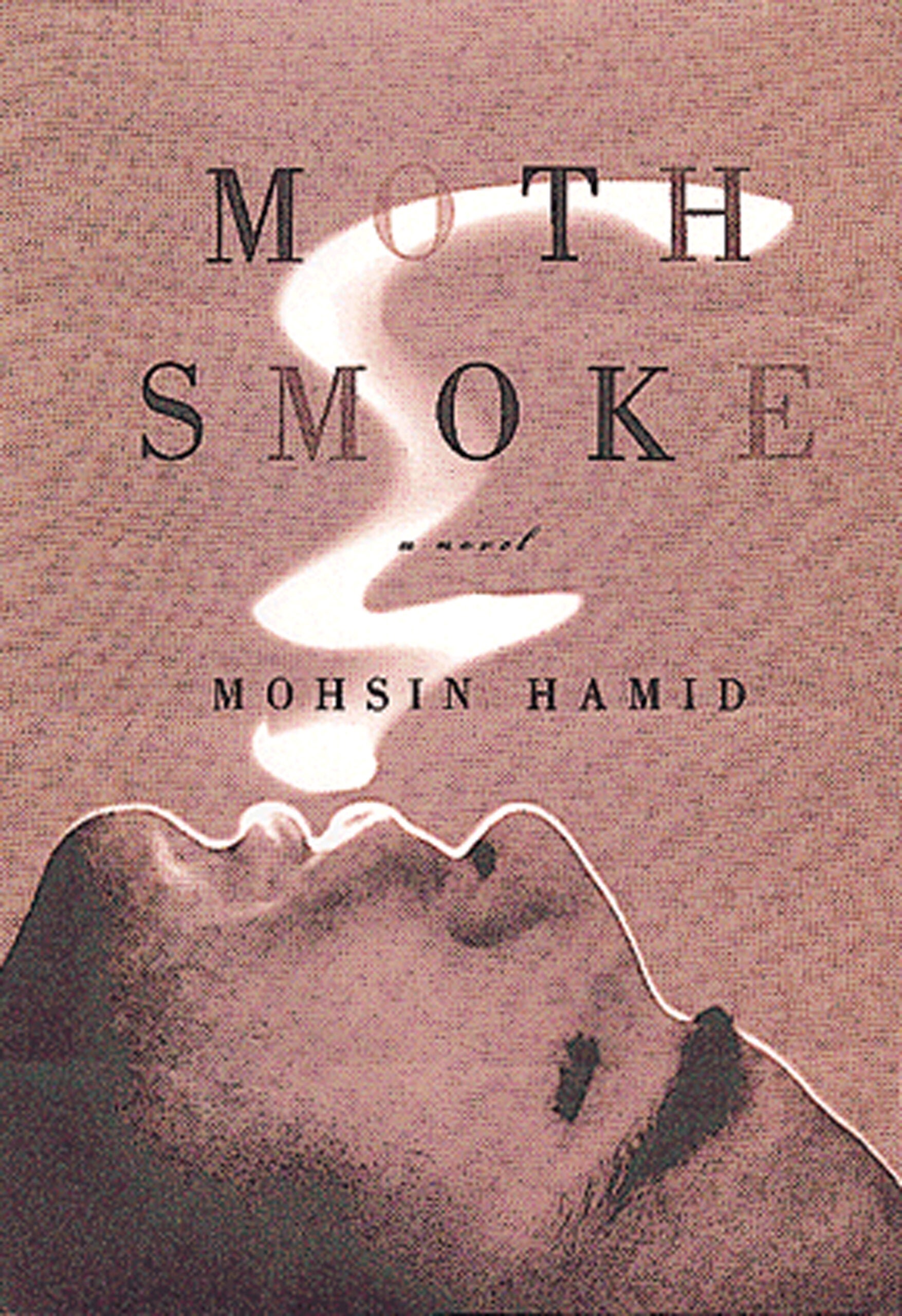People
Richard Parker
-
This time, another populist uprising
January 3, 2020
An article by Richard Parker: A while back, a member of Congress compared our supposedly dysfunctional politics to the American Revolution. “It feels,” she said, “like a 1776 kind of fight.” She’s right; it does. Because our politics, too, exemplifies a phenomenon of democratic renewal: a populist uprising. That is, a mobilization of ordinary people — not privileged, not usual political activists — to rebel against an entrenched political establishment. The establishment, in turn, is seen to be an elite, a “political class,” alienated from a critical mass of the people, unresponsive to them because it’s disdainful of them. Behind every populist uprising is elite failure. Such elite failure, in a democracy, tends to metastasize through the body politic. Such an uprising is the proven immunotherapy.
-
The President Is Not Above the Law
November 7, 2018
An op-ed by Stephen B. Burbank, Richard D. Parker and Lucas A. Powe Jr. The rule of law requires friends who are willing to ignore the partisan din that afflicts our institutions. In that spirit, 20 years ago, we participated in a friend-of-the-court brief urging the Supreme Court of the United States to reject a claim of privilege by President Bill Clinton, who was seeking to avoid civil litigation alleging sexual misconduct while he was governor of Arkansas. The Supreme Court did reject Clinton’s claim of immunity, vindicating the principle that no person is above the law. Now, President Donald Trump is appealing from an order denying his motion to dismiss a civil case brought against him. The plaintiff, Sumner Zervos, alleges that, while a private citizen, Trump defamed her when he called her a liar for accusing him of sexual misconduct. The president asserts that he has a constitutional privilege that protects him against civil litigation in state court, whether or not the claims relate to his official conduct.
-
The President Is Not Above the Law
October 26, 2018
An op-ed by Stephen B. Burbank, Richard D. Parker and Lucas A. Powe Jr. The rule of law requires friends who are willing to ignore the partisan din that afflicts our institutions. In that spirit, 20 years ago, we participated in a friend-of-the-court brief urging the Supreme Court of the United States to reject a claim of privilege by President Bill Clinton, who was seeking to avoid civil litigation alleging sexual misconduct while he was governor of Arkansas. The Supreme Court did reject Clinton’s claim of immunity, vindicating the principle that no person is above the law. Now, President Donald Trump is appealing from an order denying his motion to dismiss a civil case brought against him. The plaintiff, Sumner Zervos, alleges that, while a private citizen, Trump defamed her when he called her a liar for accusing him of sexual misconduct. The president asserts that he has a constitutional privilege that protects him against civil litigation in state court, whether or not the claims relate to his official conduct.
-
Trump attacks flag-burning, legalized after a 1984 arrest in Texas
November 30, 2016
When counter-protesters ripped up an American flag at a White Lives Matter rally last month in southwest Houston, their actions - though repugnant to many - were protected by the First Amendment, thanks to a landmark Supreme Court case out of Texas decided in 1989. With an early-morning tweet on Tuesday, President-elect Donald Trump reignited the debate over whether to punish those who burn, rip or otherwise desecrate the flag. However, constitutional scholars said his suggestion of imprisoning flag-burners or stripping their citizenship was outside the mainstream of contemporary legal thought...If Trump got to pick another justice or two after Scalia's replacement, then the 1989 decision might face a reversal, said Richard D. Parker, a criminal justice professor at Harvard Law School...Parker, the Harvard Law professor, leads the Citizens' Flag Coalition, which advocates for a constitutional amendment to let governments outlaw flag-burning. He said popular will should overrule the Supreme Court justices.
-
Citizen’s Flag Alliance: A Flag Burns in Brooklyn
July 6, 2015
American Legion National Commander Michael D. Helm and Citizen's Flag Alliance (CFA) Chairman Richard Parker have news for members of Congress who resist support of a U.S. flag protection amendment on the grounds that no one burns flags anymore. Wednesday evening in Brooklyn, NY, an anarchist group that wants to strip the New York police Department of its authority and weapons, burned a U.S. flag and a confederate flag that the protestor described as symbols of oppression...“The physical desecration of the American flag in Brooklyn today was an act of cultural terrorism,” said Richard Parker, a Harvard law professor and chairman of the CFA, a coalition of more than 140 organizations that wants Congress to pass a constitutional amendment to prohibit U.S. flag desecration. “It was an attempt to equate the American flag with the confederate battle flag – to redefine it as, according to their words, ‘a symbol of oppression and genocide.’
-
Tribe offers predictions on gay marriage rulings
May 8, 2013
Two cases regarding gay marriage, Hollingsworth v. Perry (challenging California’s Proposition 8) and United States v. Windsor (challenging the Defense of Marriage Act), were argued this term in front of the Supreme Court. The Justices are expected to reach a ruling by July 2013. In light of these arguments, The Harvard Law Bulletin asked Harvard Law School Professor Laurence Tribe '66 to offer some predictions for how the two cases might be decided.
-
In response to a widely perceived dysfunctional political environment in Washington, D.C., attendees at a conference at Harvard Law School evaluated the potential and pitfalls of a possible remedy—a first-ever Article V convention to propose amendments to the Constitution.
-
Parker on protecting the flag: “I hope it will be much easier to amend the constitution”
June 1, 2009
In the following interview in the June issue of The American Legion Magazine, HLS Professor Richard Parker ’70, a Constitutional law scholar, discusses his views on the Constitution and his support for a constitutional amendment that would return the right to protect the U.S. flag from physical desecration. Parker is chairman of the board of directors for the Citizens Flag Alliance and the author of "Here, the People Rule: A Constitutional Populist Manifesto." The title of the American Legion interview is "The Power to Protect."
-
Armed with the Truth
April 23, 2006
At the top of his game, Melvin Kraft ’53 switched to a new one A few years ago, HLS Professor Richard D. Parker ’70 sat…
-
A Marriage Contrast
July 1, 2004
The Massachusetts Supreme Judicial Court decision in Goodridge v. Department of Public Health last fall has allowed gay marriage in the commonwealth--at least for now.
-
Stand for the Flag
April 1, 2004
Because of two 5-4 Supreme Court decisions, physical desecration of the American flag is legal. Professor Richard Parker ' 70 supports a constitutional amendment that would change that.
-
A Novel Idea
July 18, 2000
Most law school papers don't get glowing reviews from the New York Times Book Review. But most law school papers aren't like Mohsin Hamid's.


